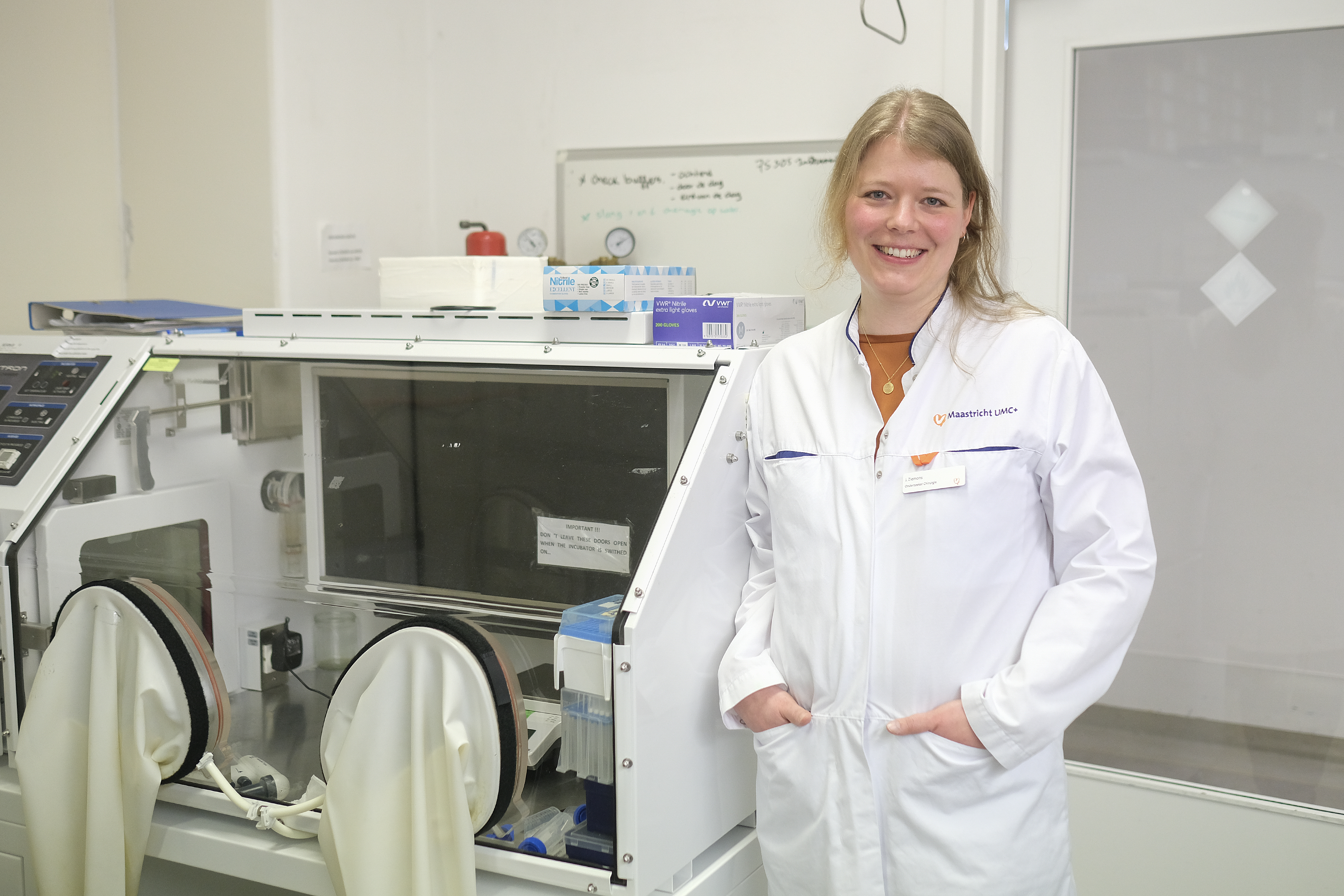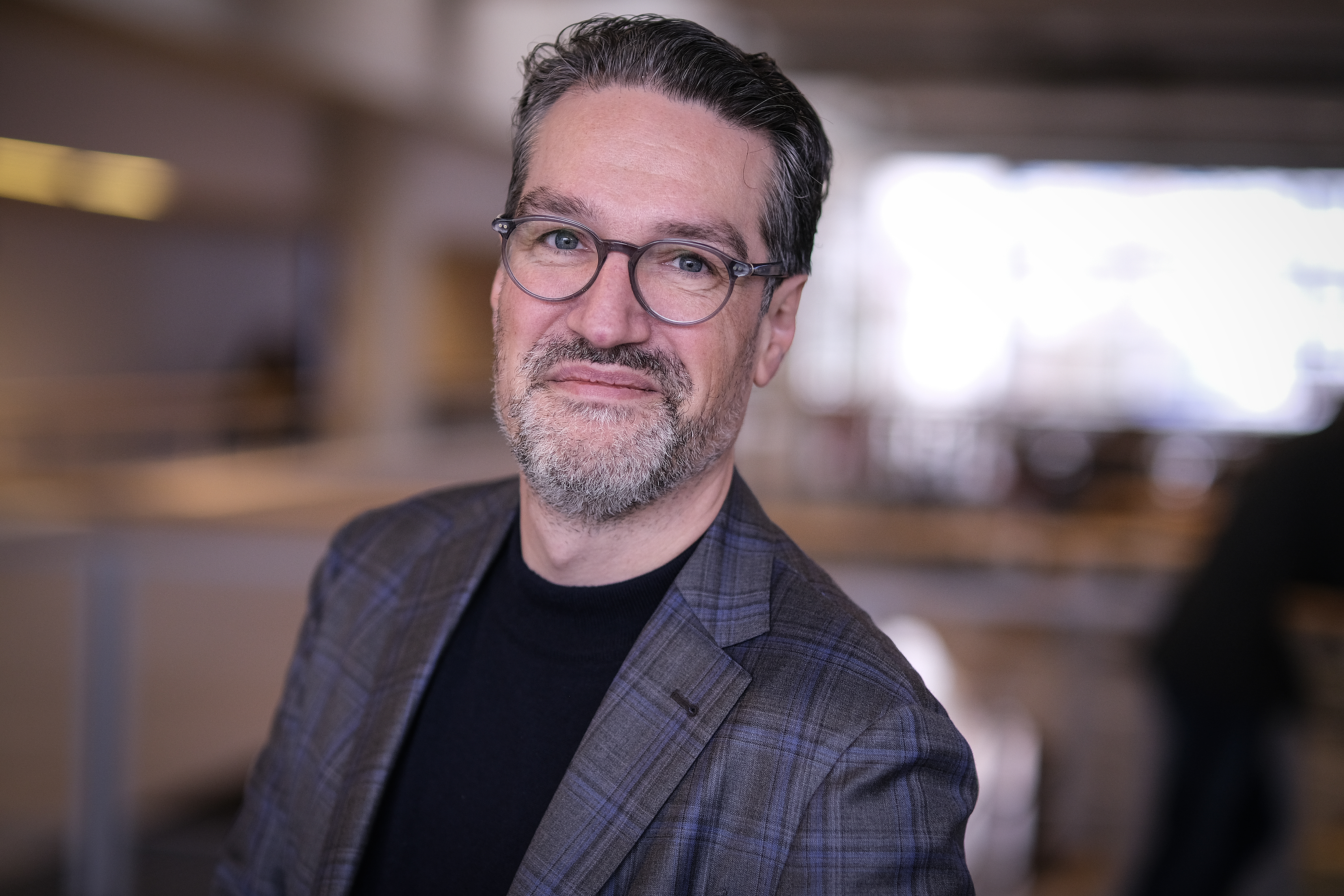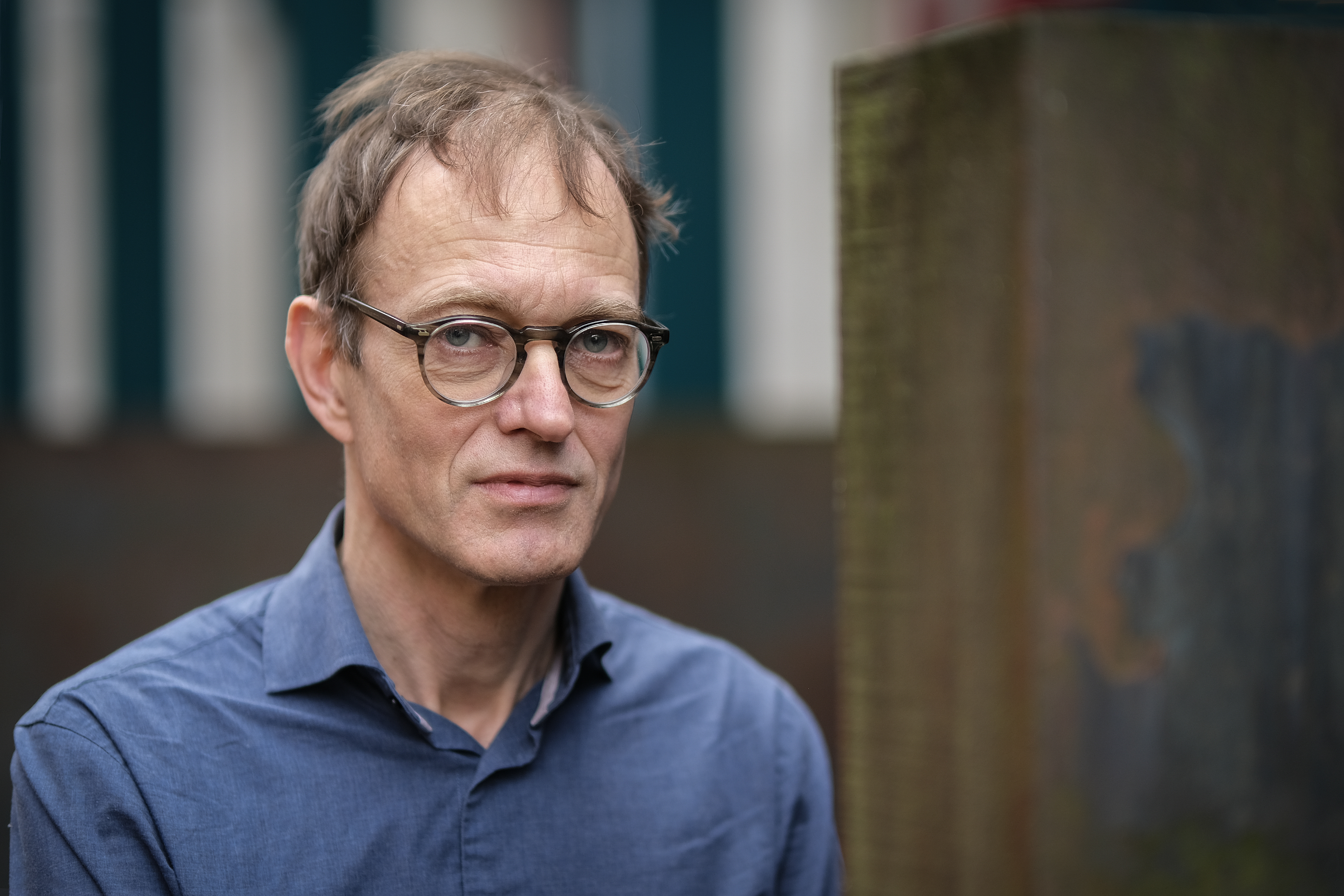News
-
Scientists at the biomedical MERLN Institute of Maastricht University and the Maastricht University Medical Center have succeeded in growing an embryo structure of human identical twins purely from stem cells, without using an egg or sperm cell. Thanks to this culture, scientists are now seeing for...
-
Students at our faculty are committed to making an impact on health, well-being and society. Among them is Angelica, a master’s student in Health Education and Promotion who is an expert by experience on the impact well-formulated advice can have on a person’s life.
-
On February 8, 2024, Ziemons received her PhD from Maastricht University for the dissertation “The role of the gut microbiota in human cancer, the power of an equilibrium". This dissertation is the result of Ziemons' research on the role of the microbiota in cancer – colorectal cancer but also...
-
Scientists at the Maastricht MultiModal Molecular Institute (M4I) have developed an ‘intelligent surgery knife’, or iKnife. The European subsidy programme Interreg Flanders-Netherlands has made more than two million euros available for the further development of this technology.
-
Living brains in a laboratory and research on internet freedom –two of the ten nominees for the Klokhuis Science Prize this year are UM scientists. And you can also vote!
-
Last November, Rory Koenen delivered his inaugural lecture following his appointment as a professor in 2023 at the research institute CARIM. The chair he holds is "Biochemistry of Vascular Inflammation and Thrombosis," and Rory's research can be best described as the quest to understand the role of...
-
Pieter Jelle Visser was appointed professor at Maastricht University in 2022. He is engaged in research on Alzheimer's disease: the underlying causes and the possibilities for therapy. Visser has always been intrigued by the brain. Researching Alzheimer's fascinates him, not least because much can...
-
Three research consortia recently received 3.1 million euros from the Dutch Research Council (NWO) and the Dutch Arthritis Society (ReumaNederland) for research into the early detection of osteoarthritis. Two of these three are Maastricht based projects.
-
Researchers from Maastricht University and University Medical Centre Utrecht have shown that a ‘digital twin’ of 45 patients with heart failure can correctly predict the effectiveness of pacemaker treatment. A digital twin is a computer model that processes a variety of data from the clinic to...




